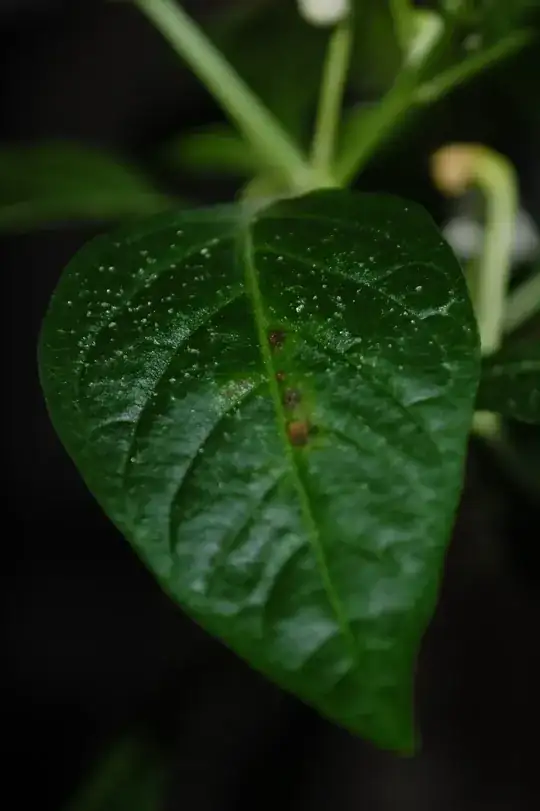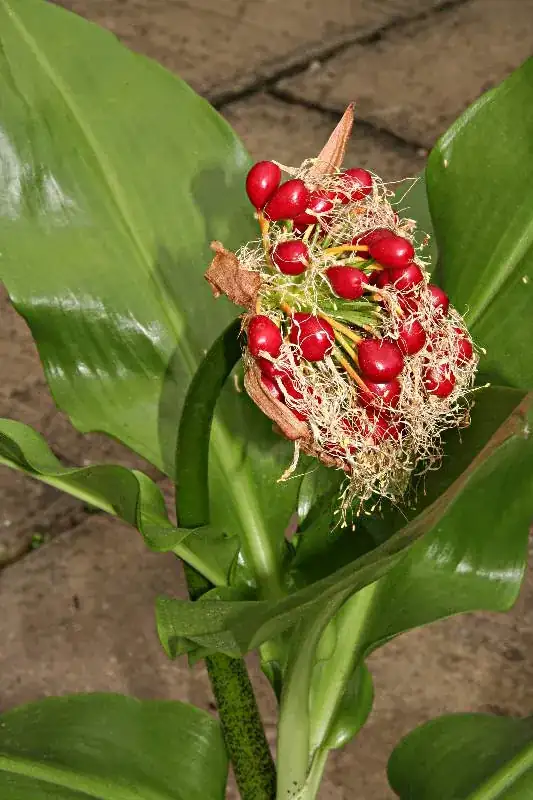I have a question regarding mint plant. As you can see attached image, in which mint leaves are having very light color. Normally, mint leaves are in dark green. Is there any deficiency?
-
1How long have the mint plants been in the same pots? – Bamboo Jun 12 '18 at 09:21
-
last two months. – Muhammad Ali Khamis Jun 14 '18 at 03:12
3 Answers
All the above are possible and difficult to diagnose.
However, you need to consider the plant:
Mint is a Mediterranean plant and needs very little organic matter, poor soil and very little water. It creeps around in open soil to find these things to survive.
There could be too much of all the above but I would say over watering is the case here. If the plant takes in too much water, the stomata in the leaves close to reduce the water in take from the atmosphere and reduces photosynthesis, eventually killing the plant which is not able to manufacture food for itself. How often do you water and how?
- 1,182
- 5
- 8
-
I water daily. My mates told me mint requires more water than normal plant. That is why I water mint plant more! – Muhammad Ali Khamis Jun 12 '18 at 05:57
-
1@MuhammadAliKhamis Water only when the surface of the soil in the pot feels a little dry to the touch - water well, allowing excess to drain away freely, and empty out any outer pot or tray after 30 minutes so the plant is not left standing in water. If these plants don't get much sun, increase their sun exposure, or at least exposure to bright daylight. – Bamboo Jun 12 '18 at 09:13
-
I wouldn’t water daily unless it’s scorching hot. Water when the plant needs it. Basically just before it’s start wilting. Once a week should be sufficient. Giving it a good soak. Pots usually have rims at the top. This is to indicate water needed to fill the pot. And as the other user said, do not let it stand in water. – user33232 Jun 12 '18 at 11:35
-
Mint is a vigorous vigorous plant sometimes called an invasive weed. It is very hardy . All plants need a certain amount of chemistry with which to make their own food. Fertilizer is NOT food. Your plants need chemistry, I kid you not. A simple all purpose extended release fertilizer that has N AND P AND K included should (I'll bet on it) turn your mint around quite quickly. A week. Soil does NOT come with the chemistry plants need to produce to please us humans. A fact. Mint needs fertilizer, not more water. Mint is a survivor, which is why some think it is invasive. Deep roots... – stormy Jun 13 '18 at 00:50
-
The best way to know when YOUR plants in pots need water is to get used to the heft of the pot and plant when you pick it up. Water, at 8 lbs per gallon is heavy. You'll easily be able to tell the difference when your plants have enough water and when they need watering. Not before and not everyday. – stormy Jun 13 '18 at 00:52
Yes, you are right, your mint has a deficiency. A chemical deficiency, not nutrient 'causes plants have to have just the right chemistry so they can make their own food via photosynthesis. Have you ever given it any fertilizer at all? What kind of soil? Hopefully you've used sterilized potting soil, all you need is a simple balanced fertilizer. The best for safety and those not into testing...is Osmocote 14-14-14, use half the amount and half the applications. Major difference. Apply once maybe twice a year. That is it. Extended release.
- 40,098
- 3
- 31
- 75
-
I have not given any fertilizer. Soil content is 1 part cocopeat + 1 part garden soil + 1 part cow dung. How about NPK 17:17:17 water soluble? – Muhammad Ali Khamis Jun 12 '18 at 04:01
-
That NPK 17-17-17 would be fine, do half of what they tell you on the instructions; less is best, more is death and none is dumb...my stupid ditty about fertilizer, sorry. Planting plants in pots with garden soil and compost is not at all a good thing. I realize it is tougher to purchase sterilized potting soil in other countries. I think that adding your fertilizer will make a huge difference. Cow dung is not fertilizer. Should always be totally decomposed before using in the garden. It is not fertilizer, it does feed soil organisms which are important in many other ways. – stormy Jun 12 '18 at 04:21
-
This looks like it could be magnesium deficiency. Magnesium deficiency can result in yellowing leaves with green veins.
You could give the plant some epsom salt, which is magnesium sulfate. Or another kind of magnesium should work.
Excessive heat can result in magnesium being unavailable. Supplementing with excess magnesium in the soil probably won't help in that case (but a foliar spray might).
- 17,794
- 4
- 27
- 65
-
1Is there any organic source of magnesium? I mean any vegetable or fruit peel for magnesium? – Muhammad Ali Khamis Jun 12 '18 at 04:04
-
Sure, but you'll have to use them wisely. There's wood ash (which may raise soil pH, but I've had mint grow fine it lots of it in the ground, which mint we were trying to remove), eggshells, bone meal, etc. Natural sources tend to contain plenty of calcium, too (which may raise soil pH or such). Bone meal may be from cows that eat non-organic stuff. There may be more sources, too. There's rockdust, too, but you'll probably want a kind chelated with humic acid, or compost that had rockdust in it while composting. I think Epsom salt can be organic approved, but I'm not sure. – Brōtsyorfuzthrāx Jun 12 '18 at 04:14
-
I'm sure compost should have some, whether banana peels or not. Plants tend to grow fine with the nutrients from compost, but I'm not sure about banana peels. – Brōtsyorfuzthrāx Jun 12 '18 at 04:26
-
1Compost does not have any fertilizer amenities. The nitrogen if that was even there in the beginning is used up in the decomposition process. Organic source for these micro chemicals? Have to rule out the macro chemicals first. No fertilizer at all? You are looking at a major nitrogen deficiency. Epsom salts are not a fertilizer. A balanced fertilizer. – stormy Jun 12 '18 at 04:26
-
Were talking about magnesium (not nitrogen). Magnesium, as well as phosphorus and potassium, and most other things should be retained in compost. – Brōtsyorfuzthrāx Jun 12 '18 at 04:27
-
Let's go chat, Shule. Compost needs to be DEFINED. Compost is not fertilizer. Compost is not used for soil. I just caught a major wonderful gardener going on about no till and no fertilizer called him on it and finally he admitted to fertilizer. – stormy Jun 12 '18 at 04:29
-
Okay. By compost I mean stuff you make with a compost bin. I'll see you in chat! :) – Brōtsyorfuzthrāx Jun 12 '18 at 04:30
-
What compost composition are you talking about? Before or after decomposition. Have you ever seen a test result on chemistry in compost? Magnesium, P and K are NOT there. Not the tests I've seen. It doesn't take much of the micro chemicals but compost is only for tiltth and feeding the soil organisms. Not for adding the chemistry plants have to have to do photosynthesis to promote chlorophyll and green leaves. We humans have to add fertilizer, know what is in the compost to be in charge of the chemistry otherwise we are guessing. – stormy Jun 12 '18 at 04:32
-

